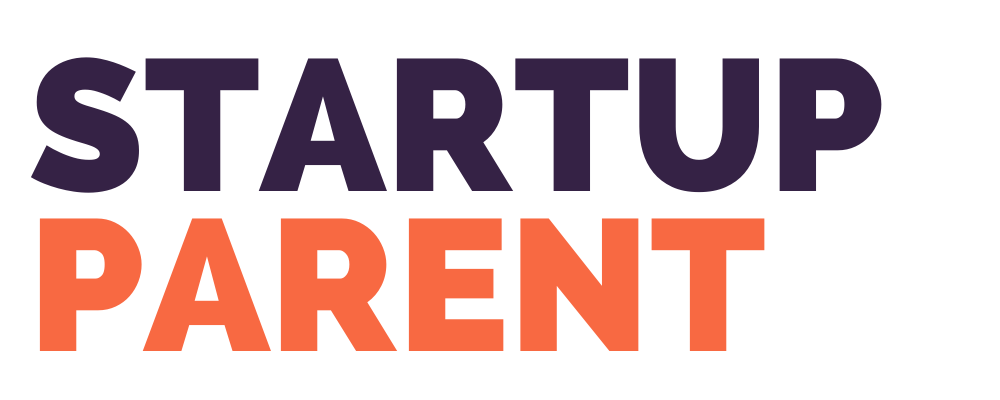Is The Pandemic Messing Up Our Kids? — Episode #182 with Dr. Courtney Bolton
What a psychologist says about the well being of parents and children in a pandemic
How badly is this year, this pandemic, messing up our kids and us, as parents? After more than a year of living through social distancing, virtual school and blended schools, and highly restricted business activities, parents and children are suffering tremendously.
We still don’t know what the long-term damage looks like, so I reached out to a parenting and children’s psychologist, Dr. Courtney Bolton, to ask her about how parents and kids will fare through all of this.
Dr Courtney Bolton has a PhD in counseling clinical and school psychology, and she is a parenting coach focused on evidence-based strategies for the development of kids. She’s a mom of four and she helps parents make contextual, intentional parenting decisions that work for them and their families. I asked her to join me to talk about parenting, stress, and the pandemic.
Is The Pandemic Messing Up Our Kids?
The Startup Parent Podcast — Episode #182
TALKING TO YOUR KIDS ABOUT GRIEF, LOSS, & THE PANDEMIC
“If we lose a parent and our children lose a grandparent, that can be really, really hard,” Courtney said. “We have to navigate that while navigating our own grief, too,” which makes this even more challenging to deal with. This can be a difficult and extraordinarily sad time, and one that many parents don’t know how to begin dealing with.
“The biggest thing to remember is to do it in a developmentally appropriate way,” Courtney explained. Young children aren’t going to process loss and permanence the same way we are. “Younger kids are very black and white, so we really have to watch the language that we use when talking to them.” If we say that someone died in their sleep, children might start to develop a fear of falling asleep. If we say they went into the sky, they might wonder how they got into the sky.
“Give as many facts as we possibly can, but also keep things really simple,” she advised. The more straightforward and basic with younger kids, the better. The more esoteric or strange, like “Grandma went to the sky and she’s watching you,” the harder it can be for really young kids to grasp what’s going on.
Kids have lots of questions, and that’s good. Answer their questions, stay patient, and try to stay literal with the younger kids.
In our house with my kids, we try to talk to our kids about the biology of death and try to lay it out matter of factly. “When people get old or really, really sick, our bodies can stop working. When our bodies stop working, we die. Death is part of life and everybody will die at some point.”
We also try to keep it even-keel and offer some reassurance, like, “You’re probably not going to die for a long time, and mom and dad are planning to be around for a long time, too. We are also preparing for when we die and helping to take care of things so that you will be safe and taken care of no matter what.”
The Invisible String is a great book for younger and older children, an approach to talking about loneliness, separation, and connection across times of loss and anxiety with children. This book is specifically written to “address children’s fear of being apart from the ones they love,” and to help ease children’s anxiety and fears around loss, separation, and death.
IN THIS EPISODE, WE TALK ABOUT:
- How to help little ones manage their emotional and mental understanding of all that’s changed — and specific tools for how to talk to our kids across age groups.
- How to help parents deal with all of the stress and life changes that are happening.
- Stress strategies for dealing with the coming months and not calling it “new normal” but really naming what it is and what’s happening.
- The grief and loss that’s happening in so many different ways in our homes, including the loss of income, work, career, meaning, purpose, and time.
- How to talk to kids about loss and grief.
- The 6 P’s framework she has for re-centering and adjusting as a parent.
- Also, because we’re in a pandemic, you’ll hear our kids in the background, and we have to move offices to make this interview work. This was recorded at the end of the Summer of 2020 and published in the Spring of 2021, but like the music, better late than never.
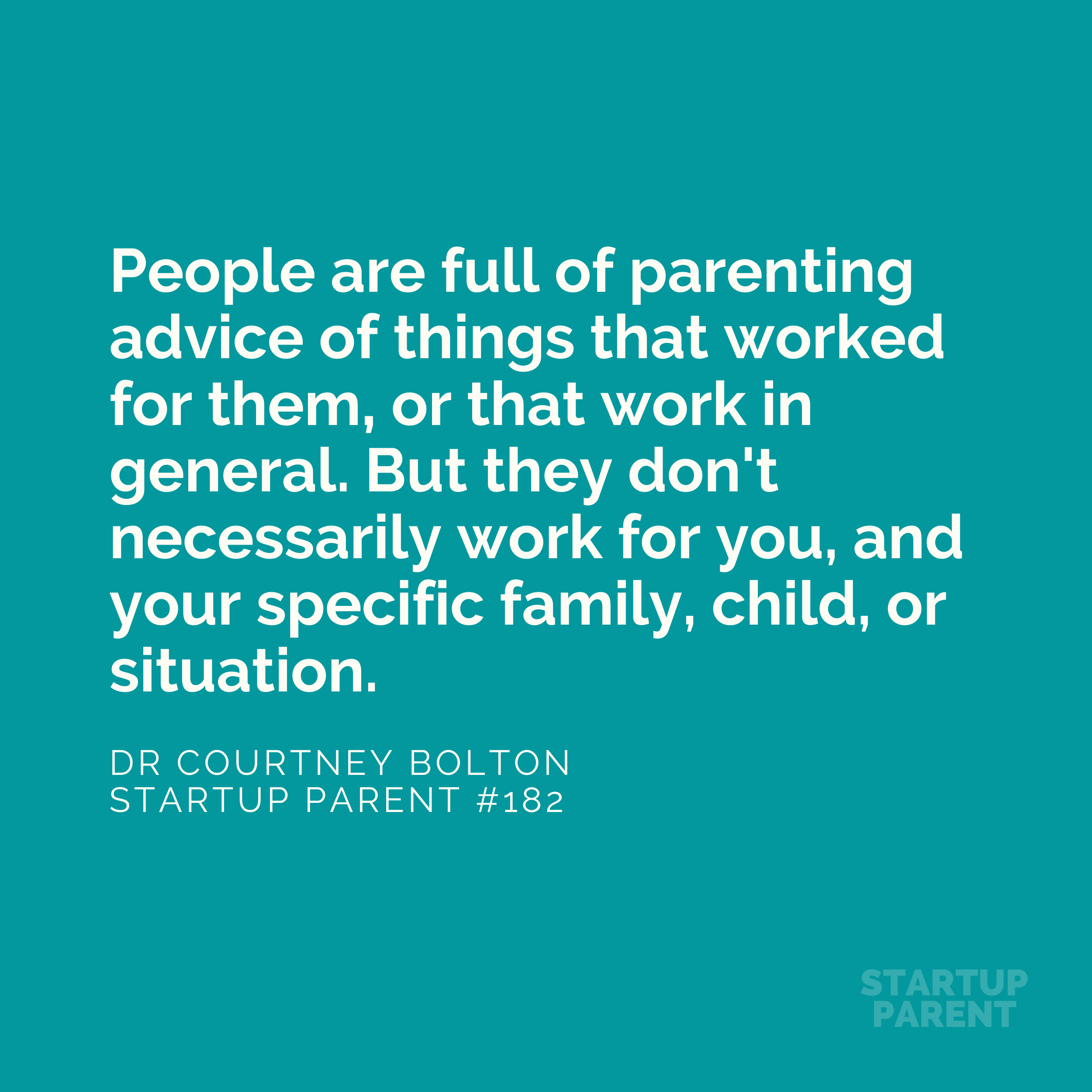
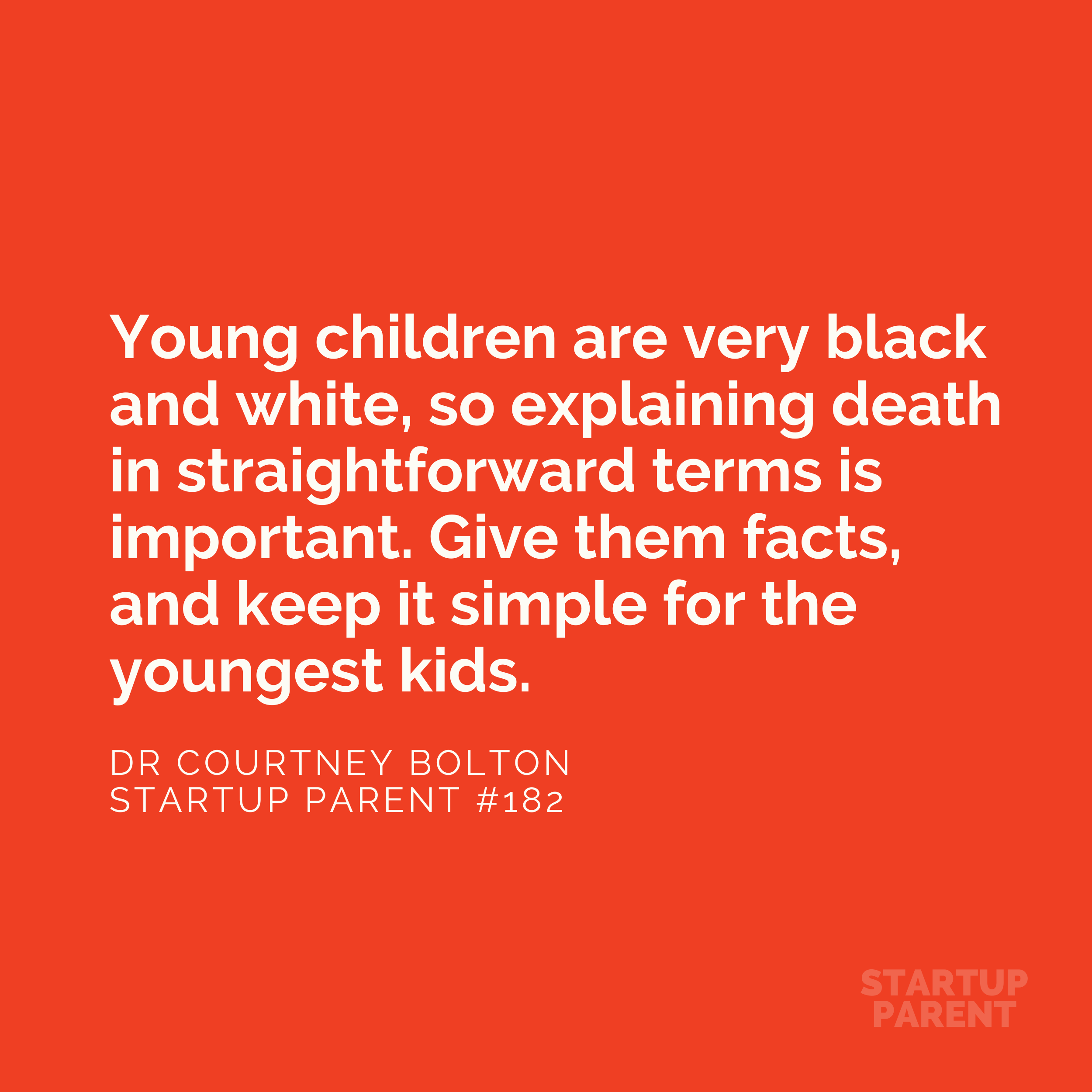
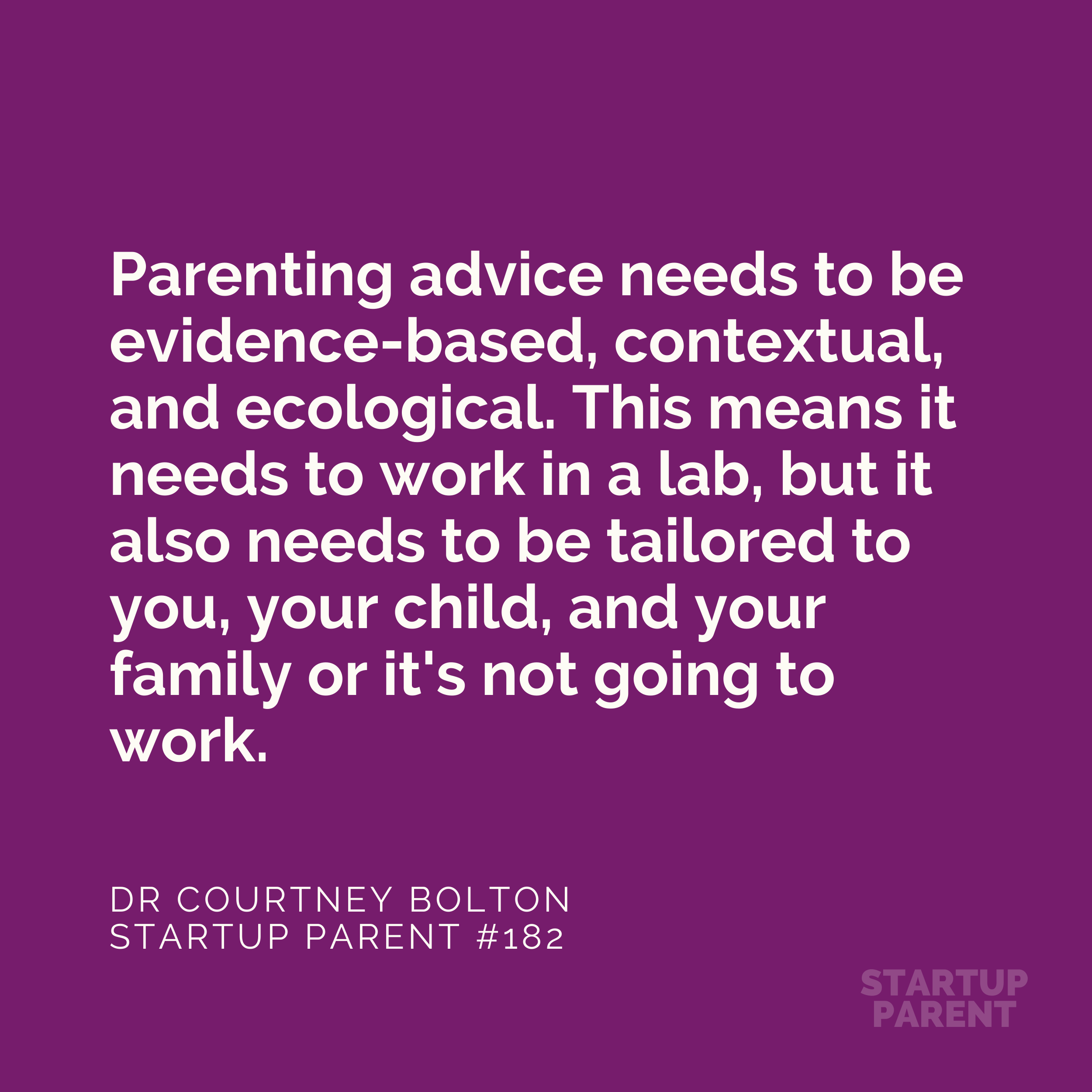
Parenting advice needs to be evidence-based, contextual, and ecological. This means it needs to work in a lab, but it also needs to be tailored to you, your child, and your family or it’s not going to work.
— Dr. Courtney Bolton
THE SIX P’S OF PARENTING & WELLBEING
- PURPOSE: Why are you here? What is your purpose, and what is your purpose right now? It might be “surviving and staying healthy” during the pandemic. It might be taking care of others during your early parenting years.
- PASSION: What do I love? What am I passionate about? This can be a hobby, a pastime, an activity.
- PLEASURE: Pleasure is more fleeting, and it’s about the joys you can experience and immerse yourself in, albeit temporarily. Sex, chocolate, flowers, a hot bath—things that make you feel good and give you a tiny hit of serotonin.
- POWER: Where do you have power and control? Is there any part of your schedule that you own or have control over? We might not be able to control the government, the pandemic, or even schools—but focusing on something we can control can help our wellbeing.
- PEOPLE: We are social, and having people to talk to, and reach out to in dialogue and conversation (not social media) is really important.
- PERSPECTIVE: How are we framing and understanding things for ourselves? What story are we telling and believing about what’s happening?
If you find yourself rage-yelling or crying at 3pm every day because you’ve been with your children for 365 days (and counting) and you haven’t seen other people, it helps to step back and see the dynamic for what it is: you’re powerless over your situation, you haven’t had any pleasure or time for yourself, you haven’t spoken with enough people, and your purpose has been eroded by the endless pandemic.
For those stuck in this situation, Courtney recommends thinking about how to create more wellbeing by reframing your purpose during this time of your life, and potentially creating a little bit of space for pleasure (eating chocolate), for people (even a phone call will do), and acknowledging the spaces where you are powerless.
This is a terribly tough season of life, parents. We see you.
ABOUT THE STARTUP PARENT PODCAST
If you're growing a business, leading a team, or figuring out entrepreneurship and you have kids, this podcast is for you. We go in-depth with founders and entrepreneurial parents about what it really takes to have babies, grow businesses, and get a little bit of sleep. Sign up for the newsletter to get new episodes in your inbox. And leave us a review on iTunes.
Listen to The Startup Parent Podcast on Apple ★ Spotify ★ Overcast ★ Stitcher ★ Castbox or wherever you listen to podcasts. Find another podcast player or the RSS feed here.
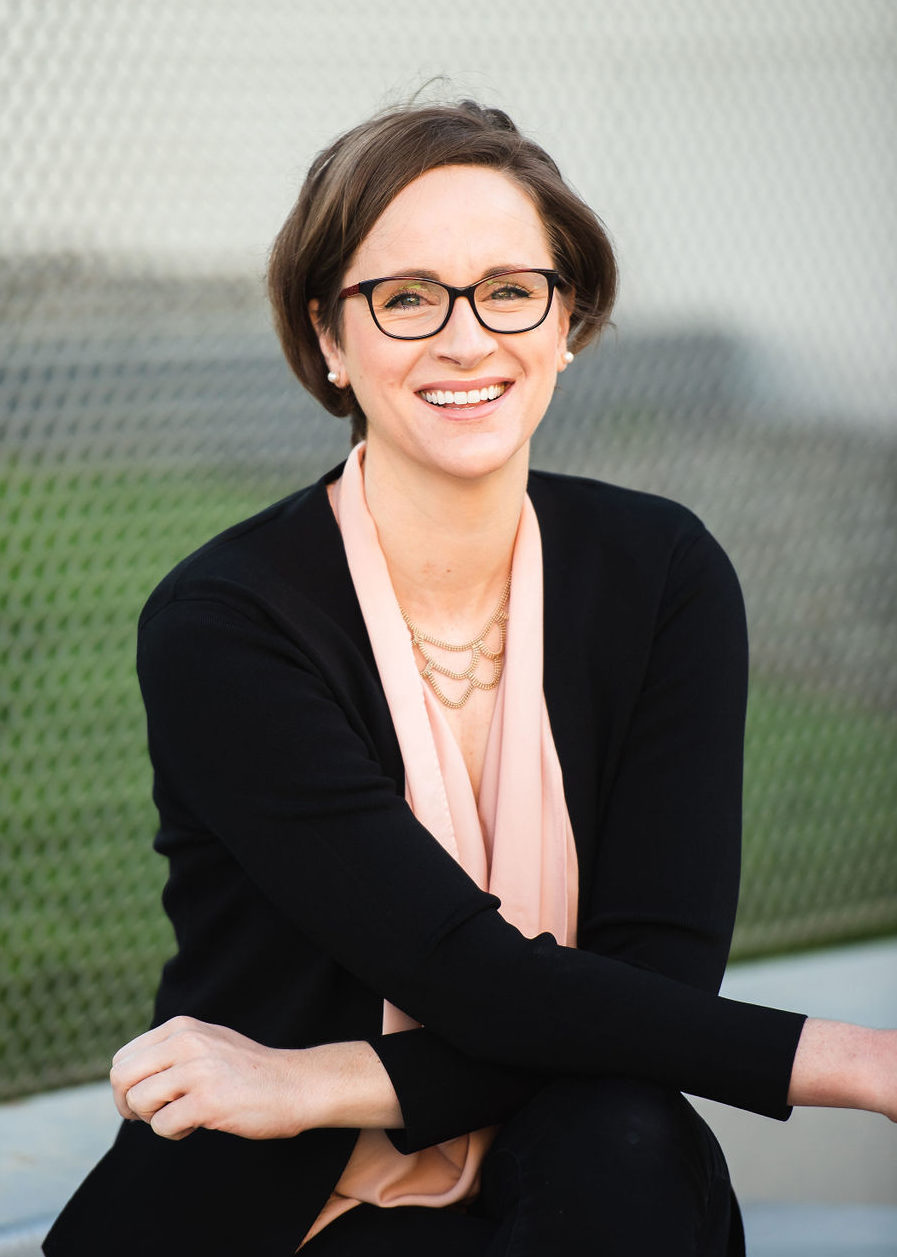
Sarah K Peck
Founder, Startup Parent
Sarah Peck is a writer, startup advisor, and yoga teacher based in New York City. She’s the founder and executive director of Startup Parent, a media company documenting the stories of women’s leadership across work and family. She hosts the weekly Startup Parent Podcast and Let's Talk, her second podcast. Previously, she worked at Y Combinator backed One Month, Inc, a company that teaches people to code in 30 days, and before that she was a writing and communications consultant.
She’s a 20-time All-American swimmer who successfully swam the Escape from Alcatraz nine separate times, once wearing only a swim cap and goggles to raise $33k for charity: water. She’s written for more than 75 different web publications and and has delivered speeches and workshops at Penn, UVA, Berkeley, Harvard, Craft & Commerce, WDS, and more.
